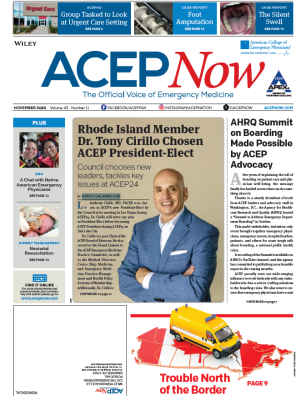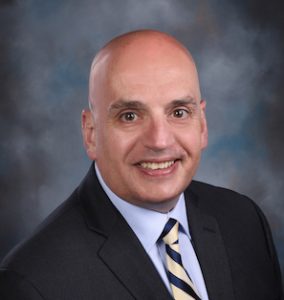The 2016 election results are nearly complete. With only the Louisiana U.S. Senate race still to be decided, the Republicans will maintain control of the U.S. Senate and the U.S. House. Now they have captured the White House with the election of Donald Trump as president. Some of you are happy, and some are saddened by the results. This is the nature of elections. Today, however, we remain Americans, and we live in a country where political and social beliefs span the spectrum from ultra-liberal to ultra-conservative. This wide breadth of beliefs and opinions is what makes us great. The individual ideals or beliefs may not always be perfect, but we are fortunate to live in a country where we are able to express them and then vote for people to represent us based upon the principles of freedom that the country was founded upon. So the morning after the election, the sun came up, and we moved forward as a nation.
Here are some thoughts and observations about the election and the future of the country.
- A win, but losses, for emergency medicine. We are very happy for Rep. Raul Ruiz who easily won his re-election bid for a third term in the U.S. House in the California’s 36th district. Unfortunately, Rep. Joe Heck was unsuccessful in his very tough bid to win the U.S. Senate seat in Nevada, and Dr. Mark Plaster was not successful in his run for the U.S. House in the Maryland. On a personal note, I would ask you all to send an email to Joe thanking him for his service in the U.S. House and his personal sacrifice as a dedicated public servant who has represented the specialty of emergency medicine with grace and dignity. Joe needs to know that we, his EM family, are appreciative of all that he has accomplished. Joe’s email is dr.joe.heck@gmail.com.
- What do the Republicans do with the House, Senate, and White House? With their control of Congress and the White House, the pressure to perform, and govern effectively, is clearly on the Republicans. Although they do not have a supermajority of 60 able to invoke cloture (and end a filibuster), the Republicans will need to demonstrate that they can pass meaningful legislation that benefits the country. Although policy legislation is subject to a potential filibuster, budget passage and reconciliation can be done by simple majority, and that will give the Republicans the ability to fund, or defund, programs. Given that House Speaker Paul Ryan and many within the Republican Party leadership were lukewarm in support of Mr. Trump, it will be interesting to see how, or if, they can work cooperatively.
- Who will President Trump surround himself with? Given the wide range of issues that the president faces, no one person can really run the country alone. The success of every presidency is contingent upon the cabinet and senior advisors that they surround themselves with.
- The Republicans will select the next U.S. Supreme Court justice. The high-risk delay tactic utilized by the Republicans in refusing to hold hearings on Merrick Garland, nominated by President Barack Obama will now allow Mr. Trump to submit his nominee to the Republican-controlled U.S. Senate for hearings and confirmation. Mr. Trump has previously released a list of potential nominees and has stated that he will select someone who follows a strict interpretation of the U.S. Constitution and is a pro-life advocate.
- What happens to the Affordable Care Act (ACA)? During his campaign, Mr. Trump stated that he intends to repeal Obamacare. The Republican Party, through the leadership of Speaker Ryan, has put forth a number of concepts of how it would change health care coverage in this country. In June, Speaker Ryan released his “A Better Way” agenda, which included comprehensive policy proposals on six major topics. Assuming that Mr. Trump and Speaker Ryan are able to work together, this document may serve as the platform for significant legislation in the next two years. As we all know, there have been aspects of the ACA that have benefited patients, such as no exclusions for preexisting conditions and the expansion of Medicaid. However, the ACA has only provided coverage to 20 million of the estimated 50 million uninsured who existed when it was enacted in 2010. Also, with the subsidies to insurance companies expiring on Dec. 31, 2016, there has been an average premium increase of 25 percent for 2017, and one out of five enrollees will have no choice, with only one insurance company offering plans in their region.
- If you are a pollster or pundit, it’s time to buff your CV. If there has been one consistent thing throughout this entire election cycle, it has been how bad the pollsters and experts were. Despite high-tech daily data and analysis, the people who are paid to predict elections and develop campaign strategy were wrong again and again and again. Let’s all keep that in mind when the 2018 election cycle starts.
- Who is the next leader of the Democratic Party? Given that Secretary Hillary Clinton has been unsuccessful in her quest for the presidency twice, it is unlikely that she would make another run in four years. So who is now the face and voice of the party? Bernie Sanders, Elizabeth Warren, Chuck Schumer, Nancy Pelosi, or someone new?
- The 2018 election season has already started. Yes, you may all collectively groan, but now take a deep breath, and let’s start looking forward. Midterm elections are always a referendum on how the party in power has performed in the previous two years, and 2018 should be no different. One key fact to know is that 33 U.S. senators will be elected in 2018. Those 33 seats currently are held by 23 Democrats, two Independents (who caucus with the Democrats), and eight Republicans. The fact that the Republicans will be in control of the Senate heading into this election, with the Democrats having to defend that many seats creates an opportunity for the Republicans to potentially create a filibuster-proof majority.
- What will you do today to be more engaged in the process? Election results tell us many things. In some cases, it’s about who we like, or dislike, as candidates. Sometimes, it’s about being unhappy with the way things are and wanting change. Sometimes, it’s about the economic, social, and philosophical issues that we believe in. Elections always tell us one thing: It is important to be part of the process. Democracy is a full-contact participation sport, and it requires all of us to work at making it better, even if that creates some personal discomfort by giving our time and money. Regardless of which side of the aisle you want to sit on, the country gets stronger when more of us are active citizens. Whether you are happy or unhappy with the election results today, the important thing is that you get more involved at the local, state, and/or federal levels.
Be an educated and engaged American citizen!
Pages: 1 2 | Multi-Page



No Responses to “Moving America Forward: The Morning After, and the Mornings After That”